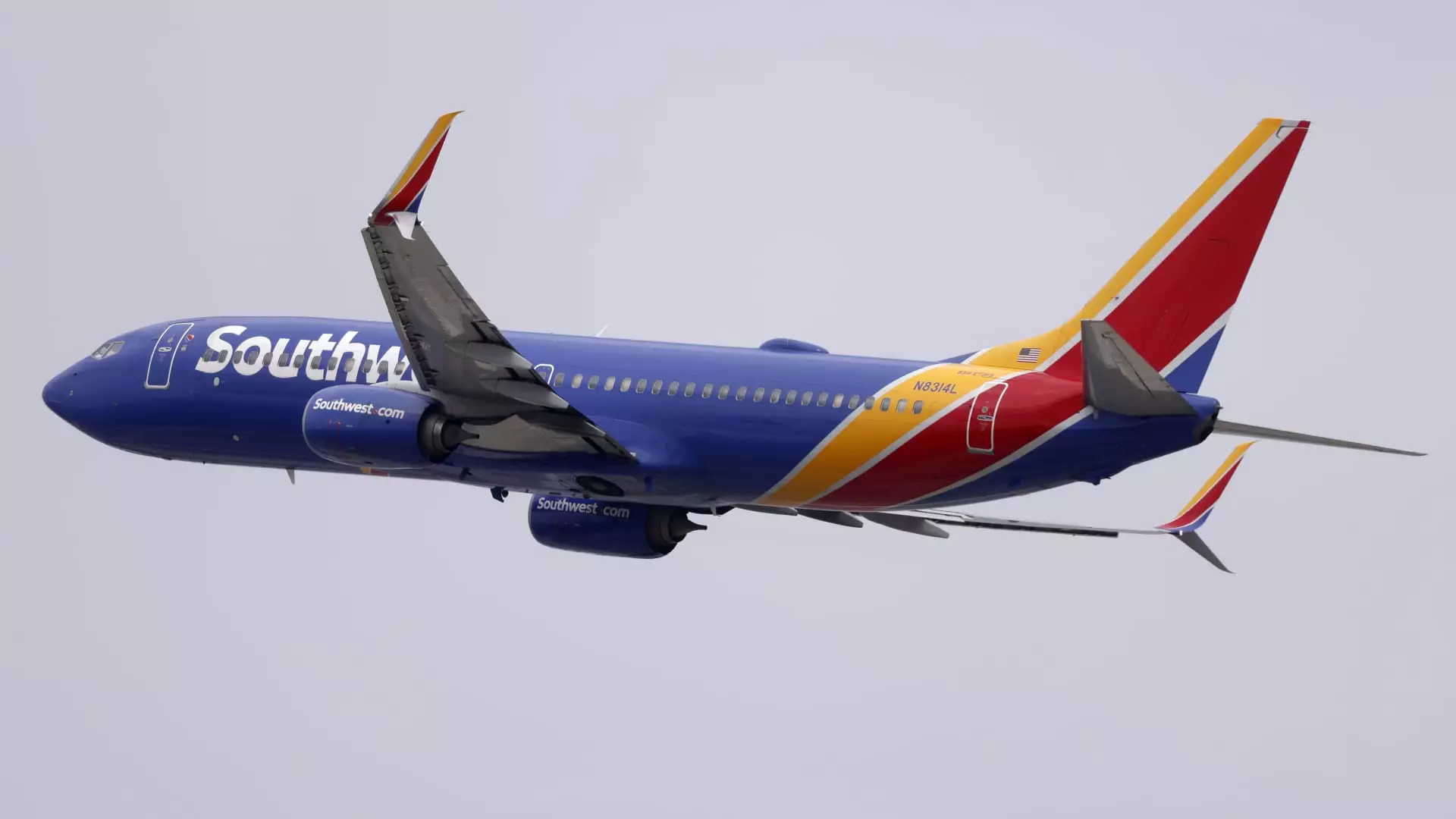In a decisive move to enforce consumer protections in air travel, the Department of Transportation (DOT) has made headlines by filing a lawsuit against Southwest Airlines. This legal action is a response to allegations that the airline consistently operated flights that were significantly delayed. Coinciding with this litigation, Frontier Airlines has also faced repercussions, with the DOT imposing a fine for similarly delayed flights. These actions mark a notable shift in regulatory attitude during the tenure of the Biden administration, which has prioritized accountability and transparency in the aviation sector.
The lawsuit centers on specific flight routes that have reportedly suffered chronic delays. According to the DOT, flights operated by Southwest Airlines from Chicago Midway International Airport to Oakland, California, and from Baltimore to Cleveland were late nearly 200 times within a five-month span between April and August 2022. The DOT defines a “chronically delayed” flight as one that is consistently late, specifically arriving over 30 minutes late more than half the time in flights operated at least 10 times each month. The situation outlined in the lawsuit indicates that Southwest was responsible for over 90% of the disruptions on these flights, prompting the DOT to take serious action.
The importance of timely operational schedules cannot be overstated in the airline industry. A key point highlighted by the DOT is that airlines must be proactive in adjusting flight schedules to reflect realistic arrival times. The agency’s lawsuit emphasizes that Southwest’s failure to do so has significantly harmed customers, who rely on timely travel for personal and professional commitments. This raises broader questions about accountability within the airline industry and the propensity of some airlines to oversell their reliability despite repeated failures.
In response to these allegations, Southwest Airlines expressed disappointment with the DOT’s decision to pursue legal action concerning flights that occurred over two years prior. The airline defended its operational track record, highlighting that it has successfully managed over 20 million flights since the establishment of the DOT’s chronic delay policy in 2009 without incurring violations. This counterargument introduces a layer of complexity to the discussion, suggesting that isolated incidents should not overshadow an otherwise strong performance over many years.
In addition to the lawsuit against Southwest, Frontier Airlines also faced scrutiny. The DOT has imposed a fine of $650,000 on the budget carrier, citing chronic delays as the primary reason. However, the fine includes a provision that allows for a reduction of $325,000 if Frontier Airlines can maintain operational integrity over the next three years, highlighting a focus on encouraging compliance rather than merely punishing failures.
The DOT’s actions against Southwest and Frontier Airlines underscore a significant shift towards stricter enforcement of consumer protections in air travel. As airlines navigate the complexities of operational efficiency, the DOT’s commitment to holding them accountable may serve to enhance the travel experience for consumers. This situation exemplifies the ongoing dialogue about the balance between airline profitability and customer satisfaction, an issue that is likely to persist in the evolving landscape of air travel regulation.

